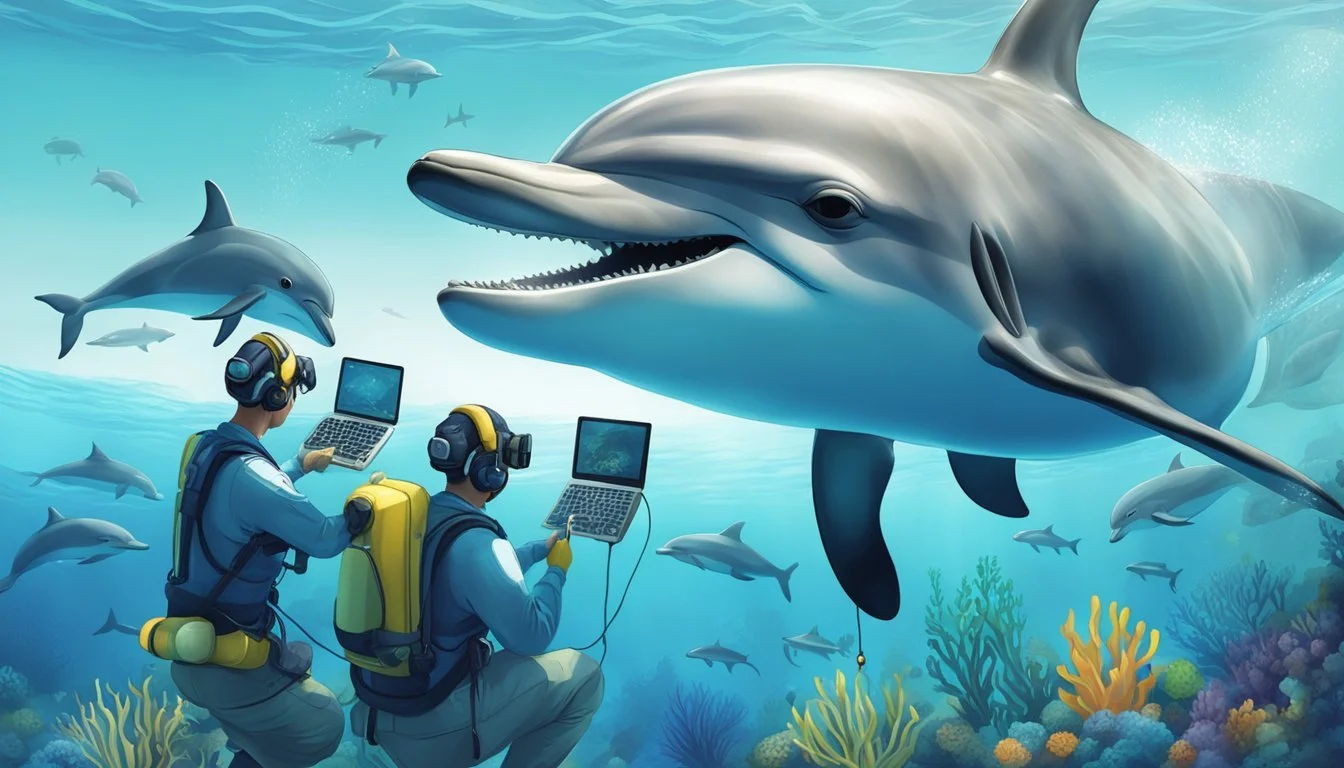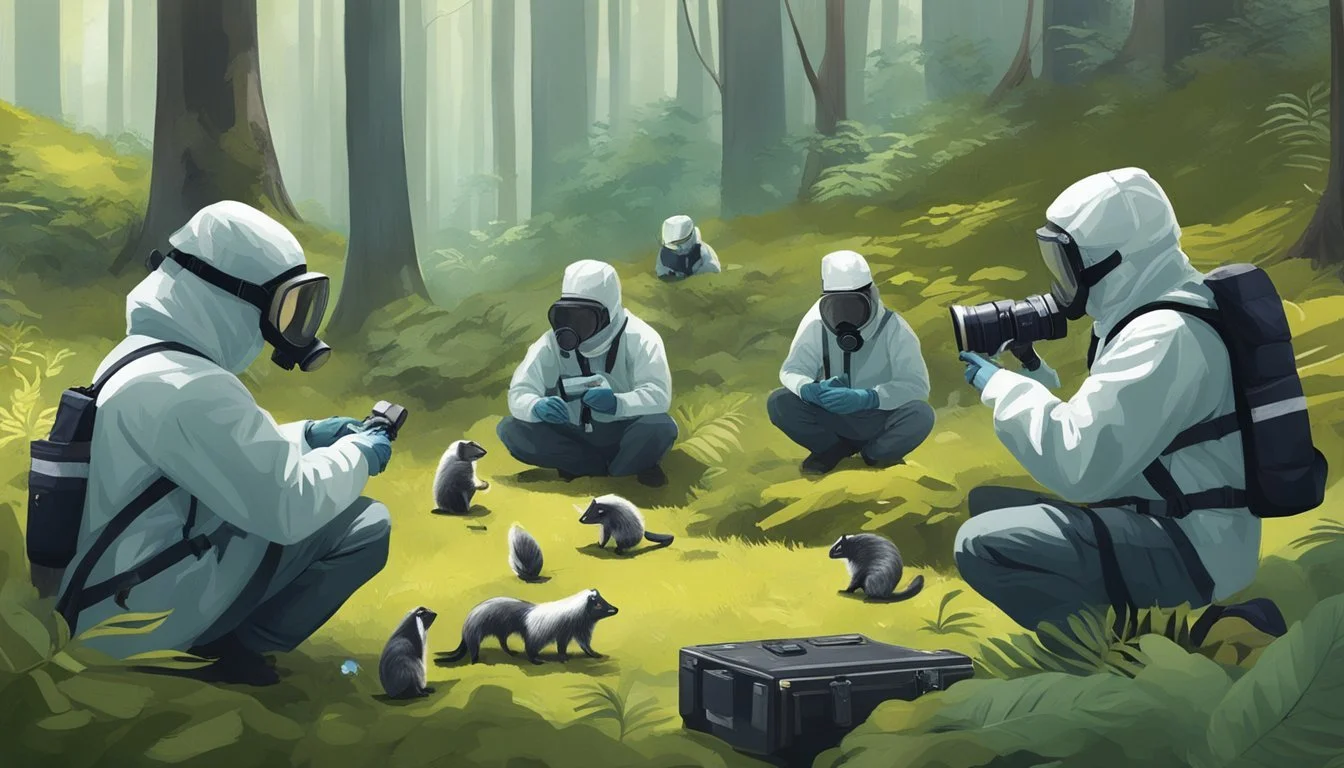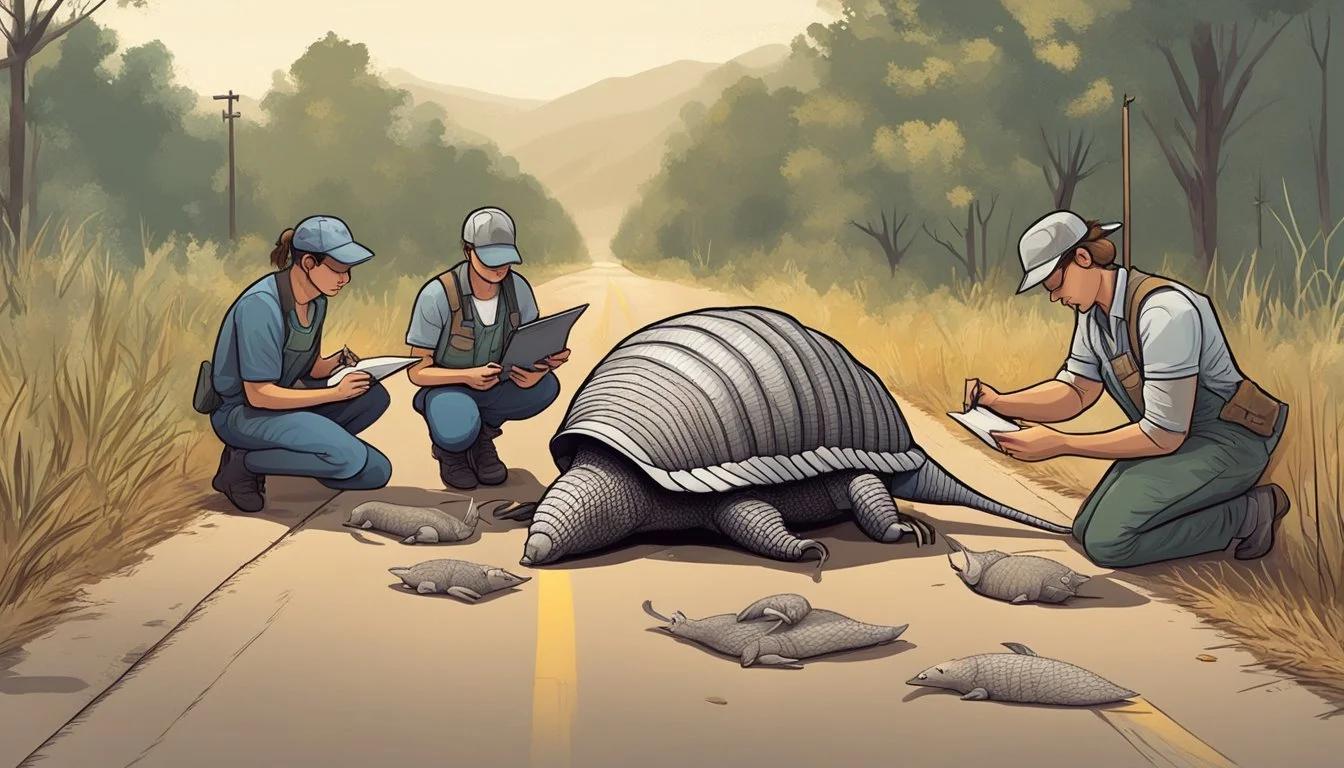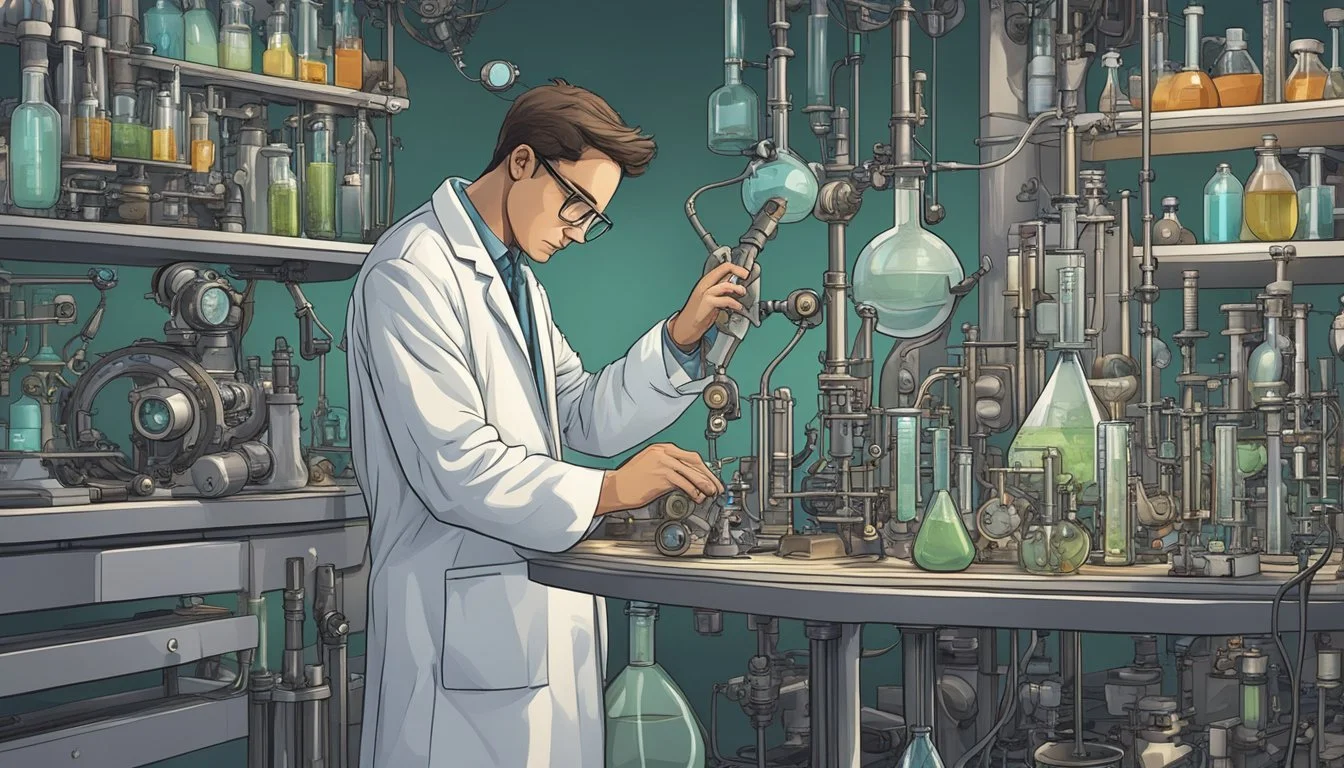8 Documentaries That Explore the Weirdest Jobs in Science
Unveiling Unusual Career Paths in Research
Science documentaries offer fascinating glimpses into the world of research and discovery. From exploring the depths of the ocean to unraveling the mysteries of the cosmos, these films showcase the incredible work being done by scientists across various fields.
Some of the most intriguing documentaries focus on the unusual and unexpected careers within science. These films highlight researchers and professionals who have carved out unique niches, pursuing knowledge in ways that often surprise and captivate viewers. By shining a light on these uncommon scientific pursuits, documentaries can inspire curiosity and spark interest in the diverse opportunities available within the scientific community.
1) The Dolphin Communication Project
The Dolphin Communication Project, led by neuroscientist Dr. John Lilly in the 1960s, aimed to bridge the gap between humans and dolphins through language. Partly funded by NASA, this ambitious endeavor sought to establish interspecies communication.
Dr. Lilly's research involved exposing dolphins to various stimuli, including human speech and psychedelic drugs. His most notable experiment involved a young woman living in a flooded house with a dolphin named Peter, attempting to teach it English.
The project gained attention for its unconventional methods and controversial practices. It raised ethical concerns and sparked debates about the treatment of animals in scientific research.
Despite its intriguing premise, the Dolphin Communication Project failed to achieve its primary goal of establishing meaningful dialogue between humans and dolphins. It remains a fascinating chapter in the history of animal behavior studies and interspecies communication attempts.
The documentary "The Girl Who Talked to Dolphins" explores this unusual scientific endeavor and its impact on the participants.
https://www.imdb.com/title/tt3667162/
2) The Skunk Whisperers
"Ned Bruha: Skunk Whisperer" offers a glimpse into the world of humane wildlife control. The documentary series follows Ned Bruha and his team in Tulsa, Oklahoma as they tackle various animal intrusions.
Bruha's unique approach involves removing unwanted critters without harming them. The show highlights encounters with raccoons, possums, bats, and of course, skunks.
Viewers witness the challenges of dealing with wildlife in urban settings. The series showcases Bruha's skills in animal behavior and creative problem-solving techniques.
While the show aimed to portray wildlife conservation, it faced criticism for its editing choices. Some felt it strayed from its original intent of highlighting ethical animal control methods.
Despite controversies, "Ned Bruha: Skunk Whisperer" brought attention to the complexities of urban wildlife management. It demonstrated the importance of humane practices in resolving human-animal conflicts.
[https://www.imdb.com/title/tt2098652/]
3) NASA's 'Human Guinea Pigs'
NASA's quest to explore Mars has led to an intriguing Earth-based experiment. The space agency invited volunteers to participate in a simulated Martian living environment.
This unique project aims to test how humans might cope with extended stays on the Red Planet. Participants live in a 1,700-square-foot habitat designed to mimic Martian conditions.
The volunteers face challenges similar to those astronauts would encounter on Mars. These include limited resources, isolation, and the need to problem-solve in a confined space.
NASA uses this data to improve future Mars mission planning. The experiment provides valuable insights into the psychological and physical effects of long-term space habitation.
Participants in these simulations are often called "human guinea pigs" due to the experimental nature of their experience. Their willingness to endure these conditions contributes significantly to space exploration research.
https://www.nasa.gov/directorates/spacetech/human-habitation-in-space/
4) The Worm Hunters
The Worm Hunters is a 2011 documentary that delves into the world of earthworm scientists. Directed by Randall Wood, this film follows a group of passionate researchers on their quest to discover new earthworm species.
These dedicated scientists travel across the globe armed with spades, GPS worm locators, and specialized fluids to unearth their prized specimens. Their ultimate goal is to find and name the world's first "Super Worm."
The documentary showcases the unexpected excitement and challenges of this niche scientific field. It highlights the researchers' determination as they explore various corners of the world in pursuit of their slimy subjects.
The Worm Hunters offers a unique glimpse into an often overlooked area of scientific study. It demonstrates the importance of earthworms in ecosystems and soil health, while also capturing the researchers' enthusiasm for their work.
This film brings to light the surprising adventure and competition involved in earthworm science. It reveals how even the study of these small creatures can lead to significant discoveries and passionate debates among experts.
https://www.imdb.com/title/tt2086617/
5) Bat Counter at the Carlsbad Caverns
The Carlsbad Caverns in New Mexico are home to a massive colony of Mexican free-tailed bats. Every evening, thousands of these bats emerge from the cave in a spectacular display.
Counting these bats is a crucial but challenging scientific task. Traditional methods of visual counting have proven inaccurate, leading to misconceptions about the colony's size.
Scientists now use advanced technologies like infrared cameras and thermal imaging to estimate bat populations more precisely. These tools allow researchers to capture the nightly exodus without disturbing the bats.
The job of a bat counter at Carlsbad Caverns involves analyzing this footage to determine population trends. It requires patience, attention to detail, and expertise in bat behavior.
This unique profession combines field work with data analysis, offering insights into bat ecology and conservation. The information gathered helps monitor the health of the bat population and the surrounding ecosystem.
Learn more about the Carlsbad Caverns and its bats
6) Roadkill Biologists
Roadkill biologists study animal carcasses found on roads to gain valuable insights into wildlife populations and behavior. These scientists analyze the remains to gather data on species distribution, migration patterns, and population dynamics.
Their work helps identify areas with high animal-vehicle collision rates, informing the design of wildlife crossings and other safety measures. Roadkill data also contributes to understanding seasonal movements and habitat preferences of various species.
The documentary "Flattened Fauna: The Science of Roadkill" explores this unique field. It follows biologists as they collect and examine roadkill specimens, revealing how this seemingly grim work contributes to conservation efforts and road safety improvements.
The film showcases innovative techniques used by roadkill biologists, such as DNA analysis and isotope studies. These methods provide insights into animal genetics and diet, offering a broader understanding of ecosystem health.
"Flattened Fauna" highlights how roadkill studies inform wildlife management policies and urban planning decisions. It demonstrates the unexpected ways in which this unconventional job advances scientific knowledge and environmental protection.
IMDB: Flattened Fauna: The Science of Roadkill
7) UFO Detectives
UFO detectives investigate claims of extraterrestrial encounters and unidentified flying objects. These scientific sleuths analyze evidence and interview witnesses to separate fact from fiction in the realm of unexplained aerial phenomena.
"I Know What I Saw" (2009) features renowned UFO researcher James Fox. The documentary examines credible UFO sightings reported by military personnel, pilots, and government officials. Fox presents compelling testimonies and official records to make a case for further scientific investigation. [https://www.imdb.com/title/tt1579236/]
"The Secret of Skinwalker Ranch" explores alleged paranormal activities at a Utah property. Scientists and researchers use advanced technology to study reported UFO sightings, strange creatures, and other unexplained phenomena. The show combines scientific methods with the intrigue of UFO hunting. [https://www.history.com/shows/the-secret-of-skinwalker-ranch]
"Travis: The True Story of Travis Walton" (2015) delves into a famous 1975 UFO abduction case. The film features interviews with Walton, witnesses, and investigators who have studied the incident for decades. It offers a detailed look at the work of UFO researchers and their methods. [https://www.imdb.com/title/tt5030194/]
8) The Ant Keeper's Tale
Ant enthusiasts and science buffs alike will be captivated by "The Ant Keeper's Tale." This documentary offers a glimpse into the intricate world of myrmecology - the study of ants.
The film follows Dr. Eleanor Wright, a dedicated ant researcher, as she meticulously tends to her laboratory colonies. Viewers witness the daily routines and challenges of maintaining these complex insect societies.
Dr. Wright's work involves observing ant behavior, conducting experiments, and documenting her findings. The documentary showcases her using advanced imaging techniques to study ant communication and social structures.
One fascinating segment explores how ant keepers recreate natural habitats within artificial nests. This allows for close-up observation of normally hidden ant activities.
The film also delves into the broader implications of ant research. It highlights how studying these tiny creatures can provide insights into fields like robotics, agriculture, and even human social behavior.
"The Ant Keeper's Tale" presents a unique perspective on scientific dedication and the hidden wonders of the natural world.
Understanding the Intersection of Science and Unusual Careers
Scientific careers often extend beyond traditional laboratory roles. Some scientists find themselves in unique positions that blend research with unconventional applications or environments.
Factors Driving Unconventional Science Careers
Technological advancements create new scientific niches. As fields like robotics and artificial intelligence evolve, scientists adapt their skills to fill emerging roles.
Interdisciplinary research also spawns atypical careers. Biologists may collaborate with engineers on biomimetic designs, while physicists join forces with artists for innovative installations.
Public interest in science communication has led to careers in science journalism, museum curation, and documentary filmmaking. These roles bridge the gap between complex research and general audiences.
Historical Perspective on Unique Scientific Roles
Throughout history, scientific progress has often relied on unconventional approaches. In the 18th century, natural philosophers blended scientific inquiry with exploration, leading to groundbreaking discoveries in biology and geology.
The space race of the 20th century created entirely new scientific professions. Astronauts combined piloting skills with scientific expertise, while mission specialists developed unique problem-solving abilities for zero-gravity environments.
World War II saw the rise of cryptanalysts, who applied mathematical and linguistic skills to code-breaking. This field later evolved into modern cybersecurity roles.
Impact of Weird Science Jobs on Society
Unusual scientific careers contribute significantly to technological progress and shape public perceptions of scientific research. These niche roles often lead to unexpected breakthroughs and captivate public imagination.
Contributions to Technological Advancements
Weird science jobs frequently drive innovation in unexpected ways. Scatologists, for example, analyze animal droppings to gain insights into species health and behavior. This seemingly odd profession has led to important discoveries in wildlife conservation and ecology.
Cyborg researchers blend biology with technology, developing groundbreaking neural interfaces. Their work enables paralyzed individuals to control robotic limbs and restore lost sensory functions.
Facial recognition specialists tackle biases in AI systems, improving accuracy and fairness in this rapidly evolving field. Their efforts enhance security applications while addressing critical ethical concerns.
Influence on Public Perception of Science
Documentaries showcasing unusual scientific careers spark curiosity and engagement with complex topics. Films like "My Octopus Teacher" highlight unconventional research methods, making marine biology more relatable to general audiences.
Weird science jobs often challenge stereotypes about scientists. They demonstrate the diversity of scientific pursuits and the creative problem-solving required in research.
Media coverage of these roles can inspire young people to consider STEM careers. By showcasing the excitement and real-world impact of niche scientific fields, documentaries help attract new talent to less conventional areas of study.









